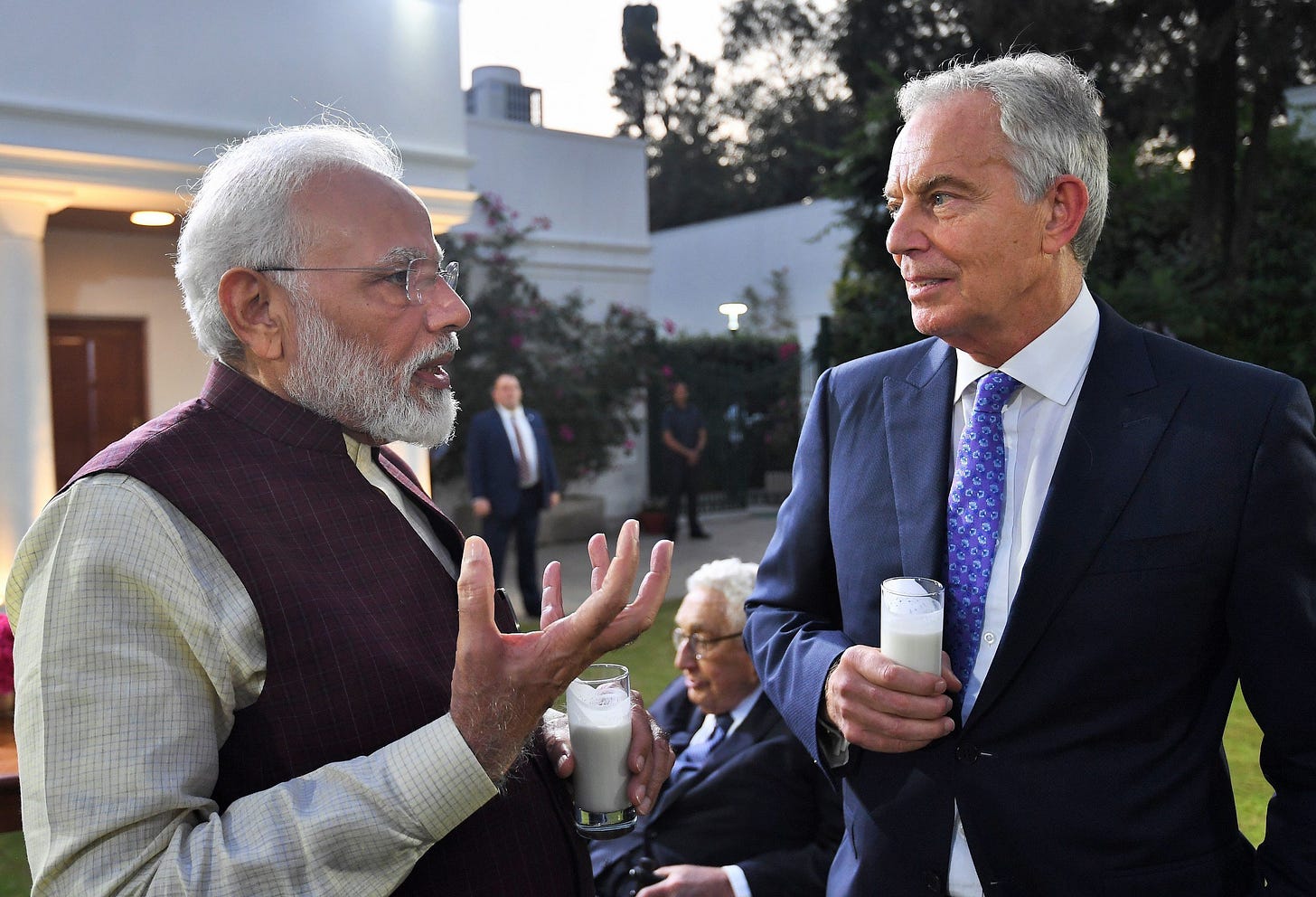Narendra Modi, Tony Blair and Modi 3.0
I want to highlight some of the excellent points made by Samyak about Modi, Tony Blair and insightful comparison between them.
Samyak has an excellent article comparing Tony Blair's political machinations to Modi’s lack thereof. Here is the link for the article. Please read it and follow Samyak. My comments are below.
Some points to note
Samyak describes how Tony Blair’s policies and institutional development (new institutions and management of old ones) restricted the degrees of freedom of future British leaders. It essentially constrained them to follow the Blair path rather than deviating based on their party commitments (for opposing parties) and personal ideology (within Blair’s own Labour party).
This is essentially the same as “Sarkar unki hai, lekin, system hamara hai”. [The government is theirs, but the system is ours].
This is what the Congress has created in India. I am unsure if Samyak is old enough to have witnessed the politics of the 1980s and 1990s. However, this was something the Congress party even boasted about. In fact, in 1989 Rajiv Gandhi led Congress was the single largest party with 190 seats but did not form a government. The idea was to teach Indias that There is no alternative to Congress.
A similar thing exists in the US, but exactly who the system belongs to is not clear.
Modi has not unravelled the system, nor has he created a countersystem. This is why Samyak is right when he says, “When Modi exits the stage, Indian politics threatens to turn the clock back straight to 2014.” This is dangerous for India.
I have argued in many fora that Modi has bypassed the bureaucracy without reforming it. He has reformed some elements but not ideologically. Modi’s outlook is performance-based and ideologically agnostic.
This is a risk. The bureaucratic subversion of the Modi government’s intent has been pointed out by many commentators. These elements will sabotage development plans.
Being kept out of power, these elements are at their vicious worst at the present moment. Modi will have to scuttle them once and for all.
Instead of a Modi-System or Congress-system, we need an India-system. The Constitution is supposed to create that. It should not allow political parties to impose their will on the people. Rather, it is supposed to translate the people's will into the governance.
This was not the basic intent of the Constitution. Its main function was to limit the state's power against the citizen.
We are not expanding the scope of this document and we need to be deliberate about it and alert to potential pitfalls and missteps.
Singapore has a high-performance bureaucracy. But is it ideologically neutral? Will it survive the travails of the power struggle? We cannot be sure. Singapore has experienced single-party rule since independence. Hence the bureaucracy is a bit more idealistic.
In Sum
There are many things to mull over regarding ideological insertion within the governmental systems. Let this be the beginning.




